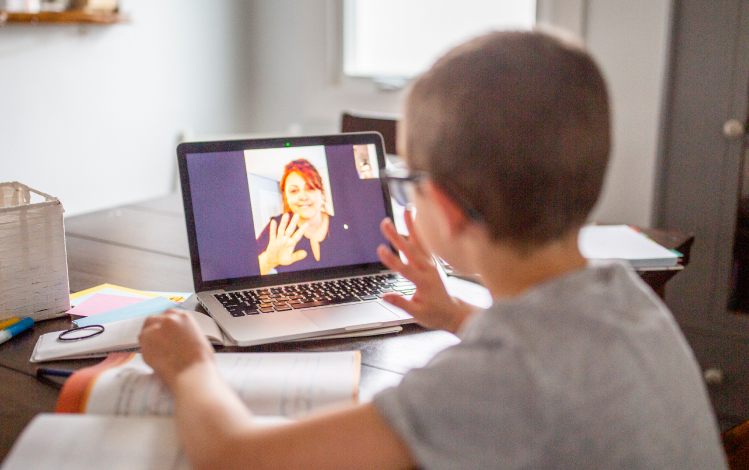

SXSW EDU: Education in a Post-Pandemic World
This has been an unprecedented year in education. The pandemic upended our traditional education system and spotlighted many of its flaws.
At the annual SXSWEDU education event this year, equitable education and the pandemic’s impact on students were the key themes. The March 9-11 event featured dozens of top speakers, including Oprah Winfrey and Secretary of Education Miguel Cardona. Typically an in-person event in Austin, Texas, this year’s event took place online, where leaders gathered virtually to discuss what the pandemic has unveiled in our education system, and the real changes we must make to ensure an equitable and accessible educational future for all students.
Below are the key takeaways from SXSW EDU, as well as the themes that education technology companies should consider as we move out of remote learning and, hopefully, back to in-person learning this fall.
SXSW EDU Key Takeaways
Addressing the Digital Divide
The pandemic made education transform into an emergency state, and widened the equity gap. School districts, educators, students and families need more resources to fix the digital divide, particularly for minority communities and low-income households, to ensure digital inclusion in the classroom. In the one-on-one discussion, “Offline & Left Behind: The Lost Generation,” former Florida Governor and ExelinEd Founder Jeb Bush explained the need for telecom companies and other private sector entities to help ensure that all U.S. students have internet access and lower-cost devices.
Post-Pandemic Social and Emotional Learning
As students will likely head back to the classroom in the fall, Secretary of Education Dr. Miguel Cardona and Dr. Tinisha Parker, Executive Director of Student Services for Gwinnett County Public Schools, discussed the importance of social and emotional learning. After the traumatic experience of the past year, students need to feel emotionally safe, connected and assured that their school is meeting them where they are, Dr. Parker said. She believes we cannot get back into the classroom and start pushing only academics. We need to also find new ways to connect emotionally with students.
EdTech Tools Are Preparing Students for Classrooms of the Future
Tech companies can partner with teachers and school districts to integrate classroom technology. By enabling students to build familiarity with these tools at a young age, schools can help them prepare for their future careers. In the panel “Next Gen EdTech: Exploring Tomorrow’s Classroom,” Jennie Magiera, Global Head of Education Impact at Google; Cigdem Ertem, Global Director for Education and Public Sector Sales at Intel; and Shelley Wu, Director of Enterprise and Education Solutions at ASUS, discussed how education technology has helped accelerate the idea of personalized learning for students this past year and made personalized learning more of a priority.
Accessible Education for All
At the “Education Equity: Reengaging Students post COVID” panel, representatives from the education-equity organization Communities in Schools discussed how public school was not built for all students. The panelists outlined that engagement should be measured in four elements: behavioral, emotional, social and cognitive. They added that digital accessibility is the key to ensuring that all students realize their full potential in school and beyond, regardless of their race, gender, ZIP code or socioeconomic background. All headings, links, images and videos need to be created with all students in mind, including those with disabilities and accessibility obstacles.
Higher Ed Must Focus on the "New Traditional Students" and Personalized Learning
The average college student is no longer a “kid,” explained the panelists of “The ‘Kids’ Aren’t Alright: Reinventing Higher Ed” — Michelle Weise, Senior Advisor at Imagine Futures; Julie Peller, Executive Director of Higher Learning Advocates; Marni Baker Stein, Chief Academic Officer at Western Governors University; and Goldie Blumenstyk, Senior Writer at The Chronicle of Higher Education. The panelists said higher-education institutions are seeing more “new traditional” students, including students with part-time jobs, older students and students who are parents themselves. This rising group of college students has specific needs that include more flexible schedules and more personalized college experiences.
Although dozens of panels and discussions took place, the conversation continually returned to the need for more equitable learning experiences for all. Speakers at SXSW EDU shone a light on what is currently not working in the education system, but they also provided inspirational words and ideas on how we can change education for the better.
To find additional recaps of SXSW EDU visit SXSWEDU.com
The latest blogs from WE
MNCs in China Must Prioritize Internal Communications
To Tell Your ESG Story, Think Digital
5 Ways Tech Will Reshape Culture in 2024


